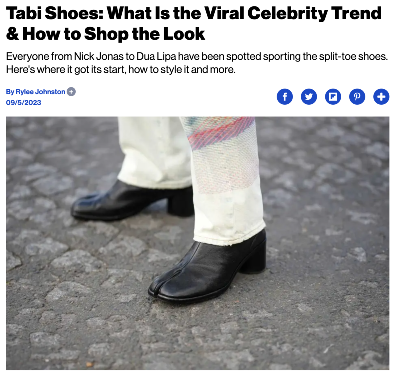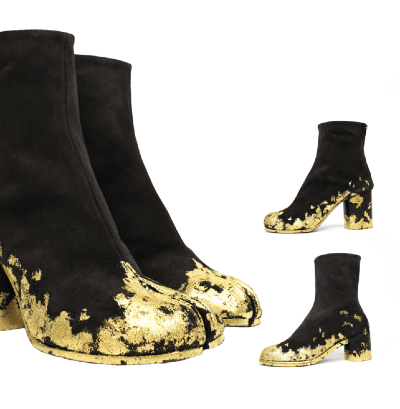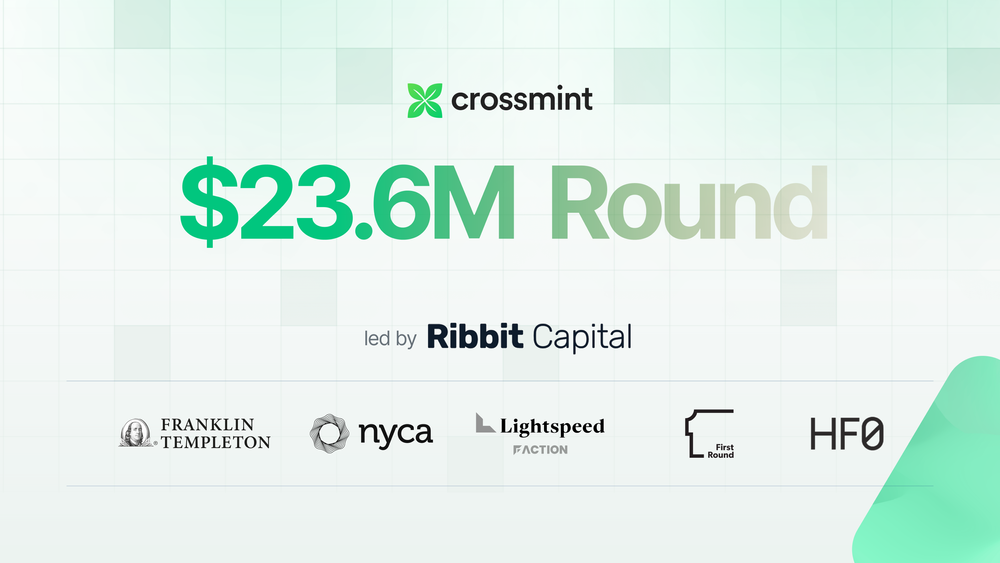The fashion industry is coming onchain.
Renowned French fashion house Maison Margiela is among those leading the charge.
With the help of The Fabricant and Crossmint, Maison Margiela just launched the MetaTABI Collection, which represents the storied brand's first major push into Web3.
The Maison Margiela Tabi
Established in 1988, Maison Margiela rose to fame through innovative designs that challenged the norms of the fashion industry. Its most iconic creation is the Tabi Boot.
Inspired by Japanese tabi socks, the Tabi Boot is known for its distinctive split-toe design. Over the years, the Tabi Boot has attracted a cult-like following, often spotted on the feet of high-profile celebrities.
Now, through The MetaTabi Collection, Maison Margiela is bringing its signature look onchain.

Let’s Get Phygital
“Phygital” goods are items that offer benefits in both the physical and digital realms. As such, buying a MetaTABI NFT unlocks an array of goods across the two dimensions.
MetaTABI NFTs come in two tiers, with Tier 1 selling 15 pieces starting at $7,700.
On the physical side, Tier 1 purchasers receive a pair of handmade, limited-edition suede Tabi boots with hand-crafted gold foil splashes.

Beyond receiving a pair of limited edition boots, the MetaTABI NFT also grants the buyer priority access to future Maison Margiela onchain initiatives. In that sense, the NFT resembles a subscription between buyer and brand. This may include invitations to exclusive events, and priority access to future clothing lines from Maison Margiela.
On the purely digital side, the buyer also gets a pair of white Tabi Boots that can be worn in virtual reality across a host of onchain games. We’re not far from a future where fashion statements are made digitally.

Maison Margiela is also offering a more accessible Tier 2 NFT, priced at $560. These NFTs come with a physical custom leather Maison Margiela wallet, a virtual pair of black Tabi boots, and a similar set of real-world and digital experiences.
The future of fashion
It’s early days for onchain fashion, but the possibilities are endless. For the first time in thousands of years, clothing makers have something new to sell beyond shirts, pants, shoes, and hats. They can sell entirely new kinds of experiences and forge deeper relationships between their most dedicated customers.
When a luxury item is bought today, the best a brand can do is try to collect an email and mass-mail some discount codes. When the purchase of a physical item is paired with an NFT, entirely new relationships are possible. The purchase can now act as an entry pass to token-gated experiences across the digital and physical realms.
In this instance, MetaTABI NFTs resemble a subscription to Maison Margiela’s entire Web3 clothing line. That said, we’re already seeing brands integrate phygital purchases into complete loyalty programs. For example, a single purchase NFT can be added to a customer’s digital passport. As new phygital products are purchased across lines, the customer earns points unlocking evermore benefits.
They can also opt to offer benefits from partner brands that can be seamlessly implemented onchain. Thanks to modern encryption techniques, the customer’s data can be kept safe, and the brand can keep it away from the prying eyes of its competitors.
The future of luxury goods
“Phygital” twins of real and digital goods are just the tip of the iceberg. Other brands like watchmaker and Crossmint partner, H. Moser, have taken things a step further. By embedding an NFT into the watch itself, they’ve created a new way of authenticating luxury goods.
The NFT holds information on the watch’s authenticity, shows product details, and doubles as a passport to exclusive content and experiences. This can also prevent counterfeiting, while enabling interactions with other product experiences.
The world of onchain luxury gets more interesting as others build more experiences on top. This will likely one day include custom marketplaces and onchain insurance and warranties. What in the past required siloed databases and custom integrations can develop into an open source and interoperable luxury ecosystem.
Bringing brands onchain
Crossmint helped make Maison Margiela and The Fabricant’s vision a reality in two ways.
First, our minting API made it simple for them to build onchain and tokenize Maison Margiela’s product line. Second, our NFT checkout and wallet infrastructure made it simple for anyone to buy these NFTs with just a credit card. At the point of sale, the NFT is automatically placed in a wallet they can access via email. The buyer doesn’t even know they’re onchain.
With our single vendor solution, it’s now easier than ever for large enterprises to build their first onchain experience. Critically, these products are now easy for the average consumer to access.
The barriers that prevented onchain adoption in the past are quietly eroding, paving the way for entirely new avenues in the fashion industry and beyond.
Want to learn how you can bring your business onchain? Contact our sales team!








